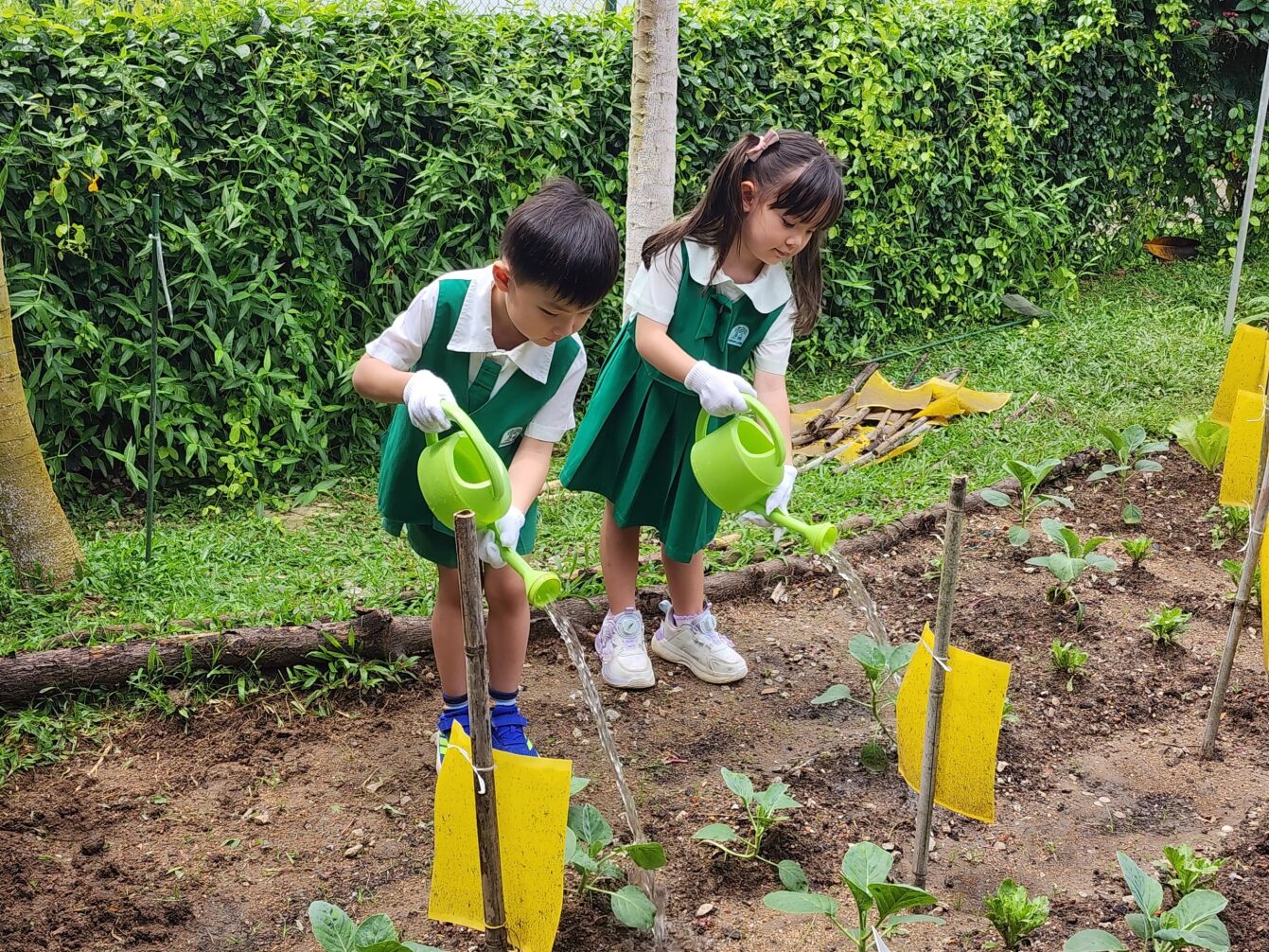Maintaining a healthy digestive system is a core part of children’s wellbeing. Digestive health affects not just their physical comfort but also their ability to thrive in daily activities such as play, learning, and rest (HealthHub, 2023). Common digestive concerns, such as constipation or struggles with mindful eating habits, can disrupt their daily routines and impact their mood and appetite. These challenges highlight the importance of fostering habits that support a healthy gut.
The Ministry of Health (MOH) and Ministry of Education (MOE) have highlighted the importance of nurturing healthy lifestyle habits from young through personalised health plans. These initiatives aim to equip children with the tools they need to thrive, from balanced meals to structured routines that promote physical activity and mindful screen use. Below, we explore practical steps to foster children’s digestive health while aligning with these national efforts.
1. Identifying Constipation in Children
Constipation is a common concern that can leave children feeling uncomfortable or less inclined to eat well. In Singapore, factors such as busy lifestyles, diet choices, and inadequate water intake may contribute to constipation among young children (Health Promotion Board [HPB], 2023). The humid climate can sometimes lead to children not hydrating enough, which exacerbates the problem.
Key signs of constipation include infrequent bowel movements, hard or lumpy stools, and tummy aches. Some children may avoid the toilet out of embarrassment or fear of pain, which can worsen the issue over time.
Addressing constipation begins with simple changes: increase fluid intake, incorporate fibre-rich foods, and establish a consistent toilet routine—such as encouraging children to sit calmly after breakfast. If symptoms persist, consulting a paediatrician ensures timely intervention, preventing further complications and restoring comfort.

Vegetables are an excellent source of fiber! At Kinderland Academy @ Yio Chu Kang, the children had an exciting time harvesting the vegetables they planted themselves, turning healthy eating into a fun and rewarding experience
2. The Power of Fibre-Rich Foods
A diet low in fibre is a common issue for many children in Singapore, where refined carbohydrates like white rice and white bread are staples (HPB, 2023). While these foods are part of cultural preferences, introducing fibre-rich alternatives can greatly support digestion. Some excellent sources of fibre include:
- Wholegrains: Brown rice, wholegrain bread, or oats. Start small by mixing white and brown rice so children can adapt to new tastes.
- Fruits and Vegetables: Local favourites like papaya, guava, and leafy greens are rich in fibre.
- Beans and Lentils: Easily added to soups or curries, they provide a gentle boost of fibre.
Visually appealing meals also encourage children to try new foods. A plate featuring slices of dragon fruit, mango, and kiwi presents variety colours that spark curiosity. At Kinderland, thoughtfully planned menus provide well-balanced meals, combining whole grains and fresh produce to nurture children’s digestive and overall health.

At Kinderland, we have a certified in-house nutritionist planning meals for the children’s wellness and immunity.
3. Mindful Eating and Mealtime Routines
Teaching children to eat slowly and chew thoroughly can prevent them from swallowing excess air or overindulging. You might begin mealtimes with a few seconds of quiet appreciation—encouraging children to notice textures, colours, and aromas. This practice not only fosters gratitude but also helps them recognise when they are full.
Consistent mealtime routines also stabilise digestive rhythms. The MOH’s guidelines stress the importance of structured routines, including mealtimes and bedtimes, as part of cultivating healthy lifestyle habits.
4. Reducing Screen Time’s Impact on Digestion
With technology playing an increasing role in children’s lives, managing screen time has become critical for promoting healthy habits. The MOH highlights the link between excessive screen use and disrupted eating, sleep, and physical activity (Straits Times, 2023).
Prolonged screen time can lead to reduced movement sluggish digestion and distracted eating. To mitigate these effects, consider the following:
- Schedule Active Play: Encourage regular physical activity throughout the day by scheduling short movement breaks, such as stretching or jumping between activities.
- Establish Screen-Free Meals: Establish a habit of enjoying meals without screens or devices to encourage mindful eating. This allows children to focus on chewing their food and develop proper eating habits.
At Kinderland, intentional active play through structured programmes like KinderFit helps keep children physically active and supports a healthy digestive system. KinderFit promotes body awareness, coordinated movement, and cardio wellness, ensuring that children stay energised and engaged. Alongside this, we introduce non-screen time digital learning to children, such as audio story listening and understanding coding through age-appropriate gadgets. These methods prepare children for a tech-reliant era while prioritising their physical and mental wellbeing. This balanced approach fosters healthy lifestyle habits and aligns with the importance of reducing the potential negative impacts of excessive screen time.

Fun meets fitness! The children enthusiastically perform their gymnastics moves, a highlight of Kinderland’s dynamic ‘KinderFit’ program.
5. Making Hydration Fun in a Tropical Climate
Hydration is vital for digestion, especially in Singapore’s hot and humid weather. Water supports the breakdown of food and nutrient absorption (AAP, 2022), but children often neglect hydration during busy activities. Here are playful ways to encourage consistent water intake:
- Fruit-Infused Water: Adding slices of lychee, lemon, or pandan leaves can make water more appealing and refreshing.
- Personalised Bottles: Fun, reusable bottles featuring a child’s favourite character or stickers can encourage frequent sips (NHS, 2023).
- Hydration Charts: Simple progress trackers with stickers reward children for finishing their water, building the habit of staying hydrated.
Recognising the importance of hydration, educators at Kinderland prompt regular water breaks throughout the day, helping children form lifelong healthy habits.

Supporting one another to stay hydrated—children reminding and helping friends refill their water with care
6. Probiotics for a Balanced Gut
Probiotics—often called “good bacteria”—help maintain a healthy gut microbiome (AAP, 2022). Foods such as natural yoghurt, kefir, and probiotic-fortified drinks can promote a balanced digestive system. To promote probiotics more appealing to children, involve them in personalising their yoghurt by mixing in chopped fresh fruit or drizzle it with honey for natural sweetness. Adding fun toppings like granola or nuts can also make meals more enjoyable and nutritious.
7. Creating a Positive Bathroom Routine
Comfort is key when it comes to healthy bowel habits. Encourage children to use the bathroom at set times, such as after waking up, after meals or before bedtime. Ensuring they have enough privacy and do not feel rushed can ease any anxiety around toilet use. Placing a small footstool under their feet can help them adopt a position that supports natural and strain-free bowel movements.
Bringing It All Together
Caring for children’s digestive health involves simple yet impactful steps—addressing constipation early, introducing fibre-rich foods, encouraging hydration, and reducing screen time. By adopting these practices alongside national initiatives such as personalised health plans, parents and educators can nurture the next generation to adopt lifelong healthy habits.
When children eat well, sleep well, learn well, and exercise well, they are set up to learn better and for success. By fostering these habits, we empower them to explore the world with confidence, energy, and joy.
References
- American Academy of Paediatrics (AAP) (2022). HealthyChildren.org: Nutrition and Hydration.
- Australian Government Department of Health (2023). Healthy Eating for Children.
- HealthHub (2023). Children’s Nutrition and Digestion Tips. At: https://www.healthhub.sg/programmes/parent-hub/preschool/nutrition-healthy-eating
- HPB (2023). Singapore: A Healthy Start for Your Child.
- The Straits Times (2023). National Scheme to Get Children to Adopt Healthy Habits. At: https://www.straitstimes.com/singapore/national-scheme-to-get-children-to-adopt-healthy-habits-and-thrive-kicks-off-with-personalised-plans
- NHS (2023). Constipation in Children. At: https://www.nhs.uk/conditions/constipation-children//


